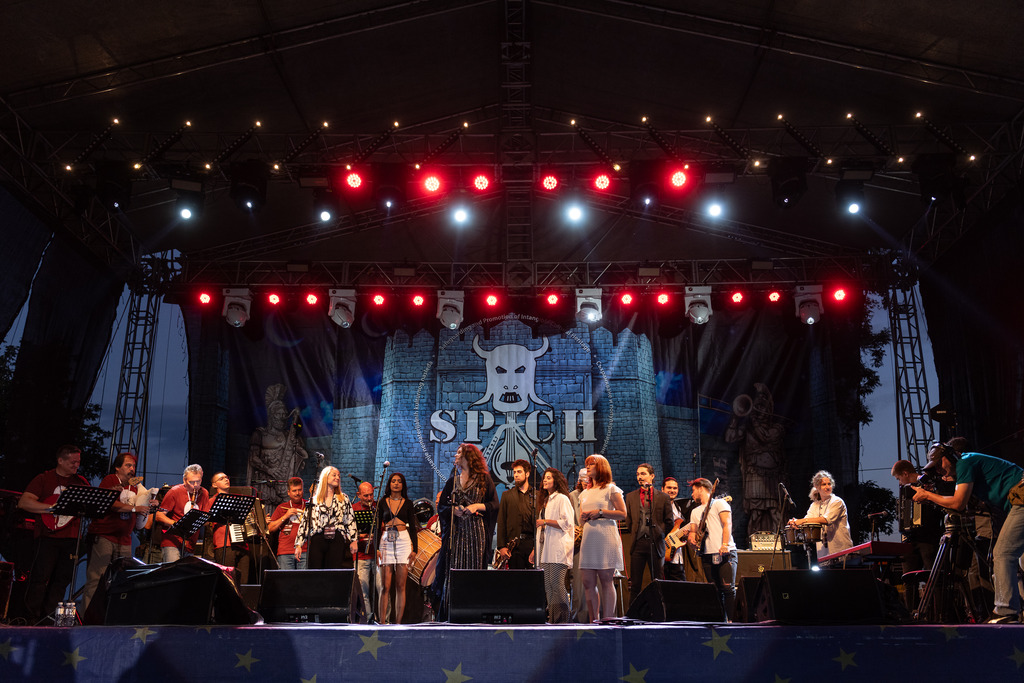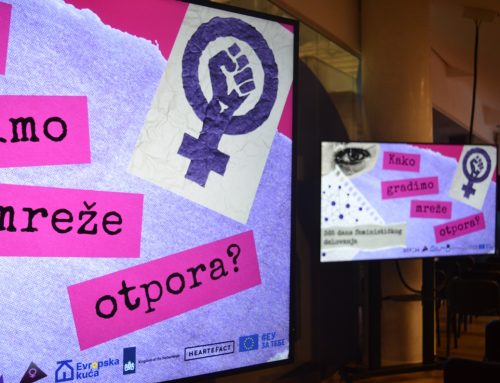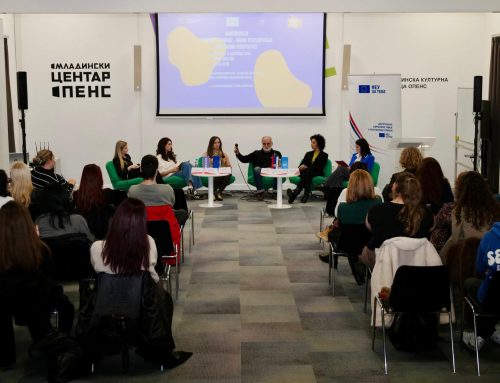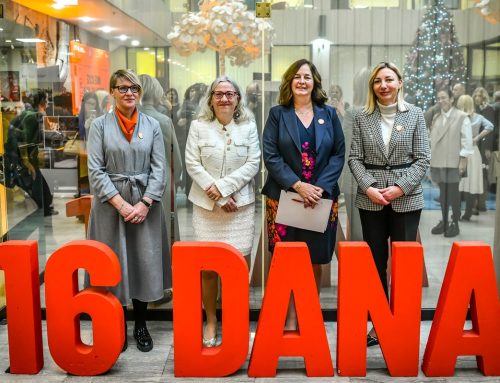A parade of highly unusual masked dancers paraded through Niš’s central square and the Fortress, captivating the attention of intrigued Niš residents and tourists. The jingling of bells that accompanied their performance, along with animal motifs adorning their masks, created a distinctive spectacle on our city streets. In contrast, this tradition has endured in Bulgaria’s western region to this day. We’re referring to the Survakars, people who joyfully usher in the New Year on January 13th, following the Julian calendar, in a festive atmosphere.
As a part of the Nišville Jazz Festival, these dancers not only showcased their tradition but also presented their “Surova Festival,” which holds a place in UNESCO’s nonmaterial cultural heritage. To safeguard the practice of crafting ritual masks and ensure the future of this tradition and festival, the “Local Heritage” organisation from Pernik found a partner in the Nashville Foundation. This foundation, from the inception of the Nashville Jazz Festival, has been effectively promoting and developing the etno jazz music scene in the region.
The SPICH project, featuring joint stage performances by artists from Serbia and Bulgaria, came to life with support from the Interreg – IPA CBC Bulgaria – Serbia programme.

“We’re only 165 kilometres apart, yet we know so little about each other,” said Vladimir Rusev, the project coordinator. He viewed the concept of uniting people from both sides of the border through culture as a personal driving force for participation. Rusev explained that by combining the traditional culture preserved by the Pernik festival and the contemporary music fostered by the Nashville Jazz Festival, they discovered a successful path to realise their project and engage audiences in both countries.
The masks exhibited in Niš were crafted during Surva mask-making workshops guided by skilled mask masters from the Pernik region. Sixty students, professional artists, and members of the Kukera group, elaborately costumed men, were instructed and educated in mask crafting during these workshops. Their efforts garnered significant attention from visitors at the Nashville exhibition.
The culmination of this project occurred during the opening of the main program of the Nishville Jazz Festival. Twenty musicians from Serbia and Bulgaria performed ten traditional songs from each country, adapted into an ethnic jazz arrangement. This grand musical display on the main stage was preceded by dedicated work in a dozen music workshops organised by the Nashville Foundation.

This approach to music development isn’t new for the Nis festival. Many musicians who graced the festival’s main stage on Thursday underwent their musical development through the Nashville Jazz Festival and its Youth Stage. These platforms have received support from the EU Delegation in Serbia since their inception. Some significant projects aimed at fostering the music scene, such as Jazz and Interculturalism – JAIN and Rojaze (Roma Jazzin Europe) in earlier years, were endorsed by Creative Europe.
Through the Ministry for European Integration, Serbia actively participates in programmes involving nearly all of its neighbouring countries: Bulgaria, Hungary, Romania, North Macedonia, Montenegro, Bosnia and Herzegovina, and Croatia. Furthermore, Serbia is participating in transnational cooperation programs like Adrion, Danube, and the interregional cooperation program URBACT.
Project proposals are welcome from various nonprofit institutions, including ministries, provincial governments, local self-government bodies, public companies, universities, schools, hospitals, agencies, associations, chambers, and civil society organisations, registered within the program’s jurisdiction.
In the scope of the transnational cooperation program, participation is also open to private companies and for-profit organisations.




